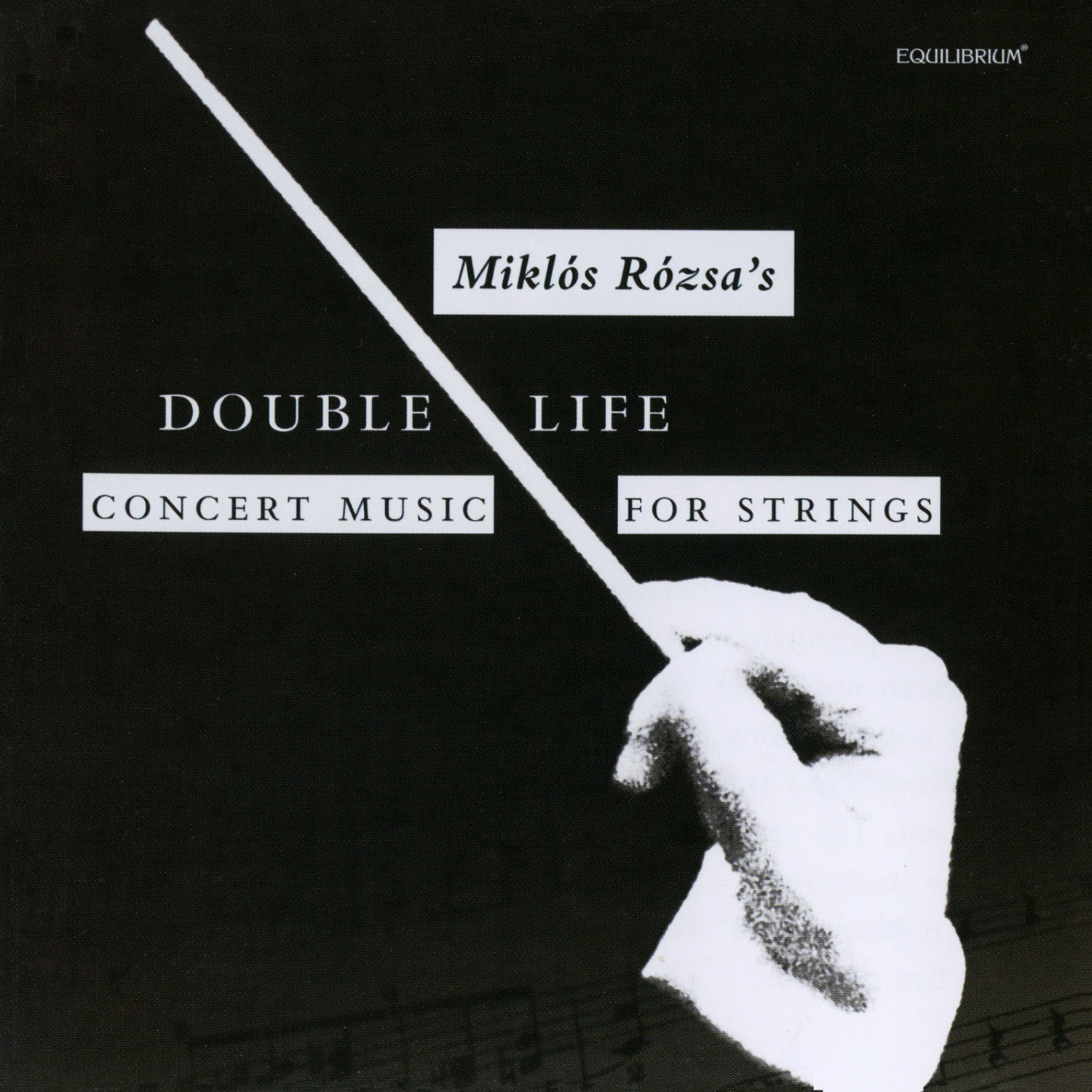Label: Equilibrium Item Number: EQ121 Format: CD Year Recorded: 2014 Miklós Rózsa's Double Life: Concert Music for StringsMarjorie Bagley Stephen Swedish - piano Michael Carrera - cello The National Philharmonic of Moldova Steven Huang - conductor
Label: Equilibrium Item Number: EQ121 Format: CD Year Recorded: 2014 This exceptionally performed music on this compact disc provides much-needed additions to available recorded performances of the music of the prolific Hungarian-American composer Miklós Rózsa (1907-1995). These three works illustrate the development and evolution of Rózsa's compositional style over more than five decades.
In a 2011 article in Grammophone Magazine, conductor, arranger and educator John Mauceri stated that when serial music alienated concert audiences in the 20th century, traditional tonal composers turned to writing movie scores. Certainly one of the best was Miklos Rozsa (1907-1995), who wrote many film scores and won three Academy Awards, including one for the movie Ben Hur (1959). The name of this album, Double Life, refers to the title of his autobiography - as well as the music for one of his films that won an Academy Award. It also describes Rozsa’s career as a film composer and a respected writer of music for the concert hall. His Violin Concerto was premiered by Jascha Heifetz and Janos Starker commissioned a cello concerto from Rozsa, which Starker premiered in 1969. The three works on this CD span a period of over fifty years, tracing his development as a composer.
The 1931 Duo for Violin and Piano was penned shortly after his graduation from the Leipzig Conservatory. It reflects Rozsa’s Hungarian folk music roots as well as Bartokian motivic development. The emotional tenor is subdued but not without melodic interest and dramatic punctuation. The Sonata for Violin Solo, Op. 40 (1985-86) seems to be far removed from the sweeping melodies of his film scores, yet the last movement contains a recognizable melodic excerpt from a film score, albeit in terse modern garb. Short melodic cells and shifting rhythmic accents create a first movement that is compelling. A middle movement that uses the long-short-short pattern of a canzona is rhapsodic and rhythmically vibrant. The passionate Vivace is an exciting finale. Violinist Marjorie Bagley plays with panache and virtuosity.
In 1958 Rosza’s friend, cellist Gregor Piatigorsky, asked him to compose a double concerto for himself and frequent collaborator, violinist Jascha Heifetz. The result was Sinfonia concertante, Op. 29, completed that summer when Rozsa was working on the score for the film Ben Hur. The middle movement, Theme and Variations was written first and played on the two famous string player’s concert series in Los Angeles in 1962. Piatigorsky was given a long solo at the beginning of the work, which annoyed Heifetz: “Do you expect me to stand there like an idiot all that time,” the temperamental violinist said. “Yes, Jascha, we expect you to stand there like an idiot,” Piatigorsky replied. There’s a tension between cello and violin that adds drama to the concerto that reflects the competition between these two great string players. The outer movements were added in 1966.
The first movement gives the violin the major thematic parts, with nervous dramatic sections alleviated by wistful romantic interludes. The brilliant orchestration is typical of Rozsa’s film scores, with a clear Hungarian flavor. The cello sings the prominent theme in the second movement, with alternating rhapsodic and dramatic variations. The finale is spirited and exciting. Both soloists play well, but the sound is a bit too reverberant and close, losing some clarity.
If you don’t know these works and like the film scores of Rozsa, this is an excellent opportunity to discover the genius of his concert works.
-Robert Moon
Audiophile Audition
Published on August 18, 2014 | 
Physical CD $16.99 US Domestic (US) orders only
|
